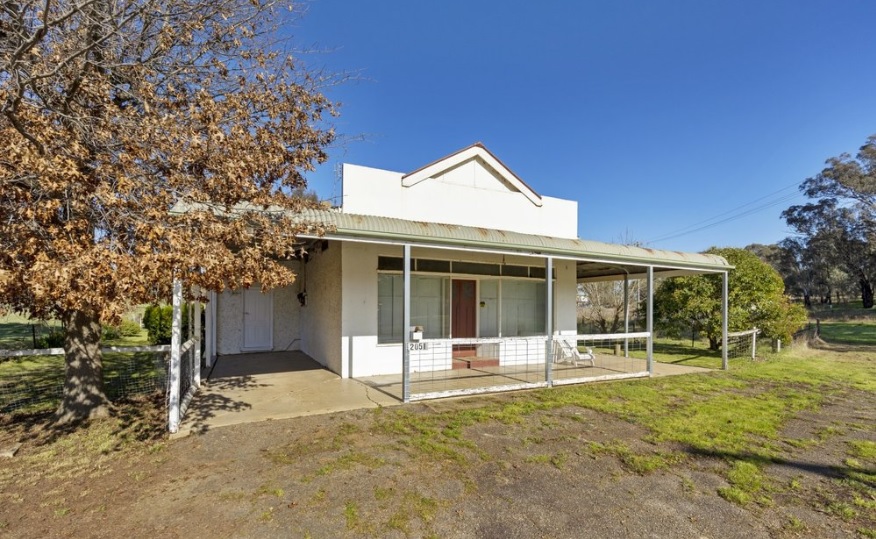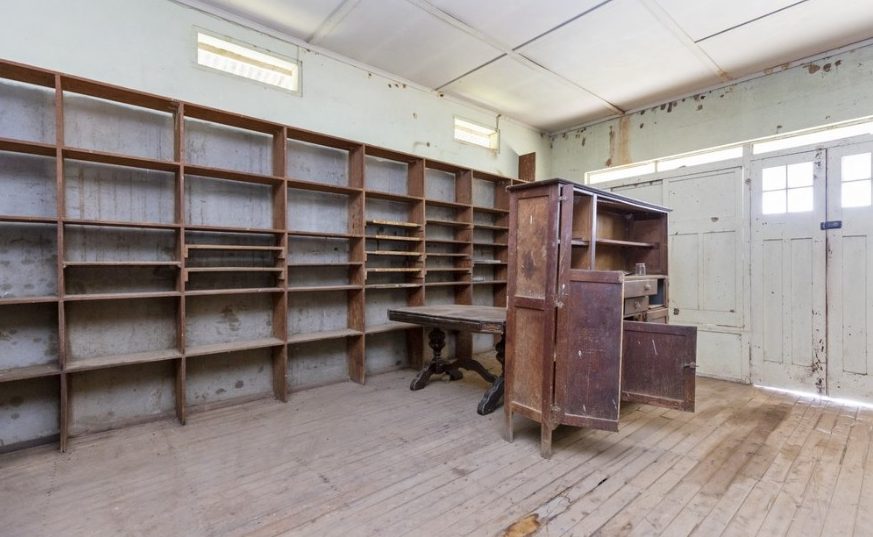
The iconic Hindmarsh Family General Store at Tumblong is set to go under the hammer in October. Image: Webster Nolan Real Estate.
A significant piece of eastern Riverina history is set to go under the hammer next month and with it a generational shift for one family whose contribution harks back to the early mining days of the district.
A 25-acre (10.39ha) block of land known as “Emoh Vale” has remained in the Hindmarsh family for more than 100 years and for four decades its primary building, known as Hindmarsh Family General Store, was the beating heart of the small village of Tumblong.
Tumblong, formerly known as Adelong Crossing or Adelong Crossing Place, has eternally held court in and around the Hume Highway.
An area first settled around 1831 as the 25,000 acre (10,000 hectare) “Bangus Station”, owned by Robert Pitt Jenkins, the son of a wealthy colonial family and, briefly, a magistrate in nearby Gundagai before becoming a NSW MLC.
Today a red-roofed, concrete-etched Adelong Crossing Hotel – known commercially as the Tumblong Tavern – stands on the highway at the site of the former “Bangus Station” residence, an old horse-drawn carriage outside reminding travellers of its 170-year existence as a public house once the Jenkins’ departed the district.
Seventy years younger, but no less of a landmark, Hindmarsh Family General Store – located just behind the Tumblong Hotel – was established in the late 1920s.
Operated by Florence Hindmarsh, it supplied bulk items to mostly miners working along the Adelong Creek, allowing her husband to continue his transport operations.

Remnants of the four decades of business the Hindmarsh General Store operated at Tumblong, near Gundagai. Image: Webster Nolan Real Estate.
The Hindmarsh family numbered some 12 children and for 36 years Tumblong Public School had a representative of the Hindmarsh family as one of its pupils, the youngest leaving in July 1949.
Over the years the shop increased its range of products, supplying customers in the village and surrounding areas, surviving the Depression years, despite tales of people receiving free handouts of groceries from the store.
Hindmarsh Family General Store saw many changes, one of the earliest being the favourable first realignment of the Hume Highway in the late 1930s which meant oils and petrol became part of the business.
When the highway was further upgraded, the post office relocated to its own shopfront adjacent to the store.
From the beginning, the Hindmarshes’ store became an ideal meeting place for all the landowners.
Seating was made available at the front of the shop and all topics were up for discussion – football, cricket, wool prices and potholes!
The iconic shop’s life was prolonged with the letting of a contract which provided for the delivery of mail to properties west of the village along the Murrumbidgee River until, due to the rise of the supermarket, better transport and better roads, Hindmarsh Family General Store ceased to trade in the late 1960s.
But the building, with its original store frontage, has remained occupied as a three-bedroom residence since the closure, and it is still recognised as a favourable meeting spot within the local area.
Acreage surrounding the shop has seen it used for sheep, pigs and more recently cattle.
Selling agent David Nolan of Webster Nolan Real Estate said “Emoh Vale” was going to auction with price range indications of between $800,000 and $900,000.
More details are available here.
Original Article published by Edwina Mason on About Regional.








